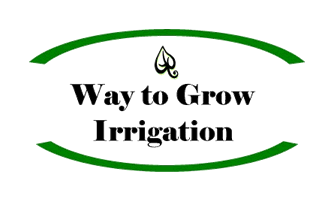Hiring a contractor
Irrigation Checklist
- What to look for when you hire an irrigation contractor
- This list identifies the important criteria for hiring an irrigation contractor.
Proof of Workers Safety and Insurance Board standing
Except for single-person companies, irrigation contractors are required by law to pay WSIB premiums on behalf of their employees in the event of a workplace injury. Hiring companies that are not in compliance makes the project owner — you — liable in case of workplace injuries. Ask to see a Certificate of Clearance.
Proof of liability insurance
All contractors should carry liability insurance to protect themselves and their clients from the expense of any unforeseen workplace incidents that might damage your own or neighbouring properties. Ask to see a Certificate of Insurance; it should state the name and address of the contractor, the fact the company carries a minimum of $1 million commercial general liability, including coverage for bodily injury and property damage, and the effective and expiry dates of the policy as well as the date of issue of the certificate.
Start Up an Winterization
A contractor should stipulate the startup and winterization schedule, procedure and associated fees.
Installation Contract
A written and signed contract will protect the interests of both the contractor and the homeowner. Contracts should clearly stipulate all details such as payment schedules, work start dates, and the complete scope of the project. Areas of responsibility, such as the provision of underground service locates, permits, etc. should also be stipulated. A good contract will also define procedures for the approval of change orders and costs of extras.
Warranty
The terms and conditions of an irrigation contractor’s warranty should be clearly spelled out in writing and should specify if the workmanship is warranted and for how long and the length of the guarantee on materials.
Human Resources
The number of employees, office support, including the number of supervisory personnel should be adequate for the size of the project. Remember, a small company with a single crew may well be sufficient for smaller projects, providing they have adequately scheduled their projects. Client references are the best indicators of scheduling ability.
Employee experience, education and certification
Determine the level of training and experience of key and supervisory personnel. Certification through the CIT and/or CIC programs indicates skilled, committed employees. A credible contractor will be pleased to promote proof of certification.
Equipment Resources
The contractor should have adequate equipment resources to complete the job efficiently. It is important to remember that it may be more cost-effective for certain or specialized pieces of equipment to be rented on an as-needed basis.
Scope of Expertise (including sub-contractors)
Determine which specific disciplines are required for your project. The company should be skilled in all aspects or have access to and use reputable sub-contractors for those areas in which they have no expertise. These include disciplines such as:
- Plumbing and backflow installation
- Electrical
- Tunnelling and boring
Years in Business
How many years has the company been in business under the current company name?
Company Facilities
Determine if the company has an office, administrative personnel, equipment storage facilities, etc. These facilities may indicate a company’s ability to deal effectively with problems during or after the construction process, return phone calls promptly, etc.
Association Membership
An accreditation procedure is part of the Landscape Ontario Horticultural Trades Association membership application process. Landscape Ontario members are required to follow a Code of Ethics and a Code of Conduct. Association membership is a very strong indicator of a company’s commitment to professionalism.


